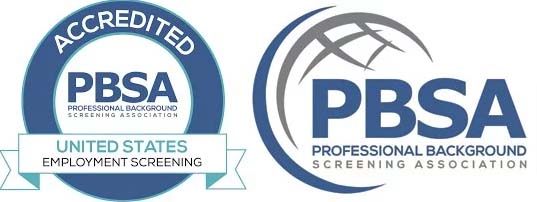Despite the Equal Pay Act of 1963 pay disparity or wage gap has remained a concern in most industries across the U.S.
For this reason, many states have passed laws to prohibit employers from asking job applicants for information about their salary history during job interviews.
To that end, salary history ban laws direct affected employers to refrain from seeking information about the current and past salaries and benefits directly from a candidate.
Employers are also prohibited from asking for salary history information from agents and sources other than the applicant including:
- Applicant’s current or former employers
- Agents of the applicant’s former employers
- Publicly available records or reports that contain information regarding an applicant’s present or past compensation data
Even modern background screening solutions do not touch these matters in their verification processes.
As of February 28, 2020, 18 state-wide and 21 local bans have already been enacted. This legislation has made it illegal for companies to ask their job applicants about their current or past earnings.
Which Groups of People are Usually Affected by Salary Disparity?
Minorities: These are persons or people that belong to a group but aren’t a part of the majority. They usually belong to a different race or ethnic groups such as Asian Americans, African Americans, Latino Americans, etc.
- Women: Females are the most common subjects of pay disparity
- Job candidates with gaps in their work history
- Applicants with criminal records: It’s not unusual for companies to turn down applicants with serious previous criminal records
- Applicants with disabilities: The perception that persons with disabilities cannot perform the same tasks or perform tasks with similar production as those without a disability contributes to this disparity
Why Salary History is Important to Employers
If employees’ wages were based on title and experience, employers wouldn’t have a problem knowing how much their prospective employees should be paid. This would enable them to determine a candidate’s wages in an instant.
That however is not the case. Employees’ salaries are negotiable and relative and it can depend on how the hiring party and the applicant negotiate throughout the process.
If you’re still wondering what the true significance of salary history in the hiring process is, it can be traced back to the conflicting interests of employers and job candidates.
Job seekers obviously want to obtain the highest compensation they can possibly receive while employers are focused on bringing in the best talent they can possibly afford.
Employers commonly offer an equal or slightly higher salary than the candidate’s current compensation. This is information which the applicant usually provides.
But that is certainly not the end of the bargaining process.
Candidates have been known to lie about or embellish their past earnings in an effort to push a potential salary higher in their new position. To counter the candidate’s approach, some organizations even go as far as requiring applicants to submit tax documents as evidence that they are telling the truth.
Employers that are seriously focused on hiring the most qualified candidate would prefer to check the work history of an applicant. Through a provider of employment screening solutions, a company is able to hire a candidate for a salary that corresponds to his qualifications.
So how does the ban on salary history affect the hiring process?
If equal pay was the norm and salaries were standardized, salary history wouldn’t be a hiring issue at all. But the real world just doesn’t work this way. No two employees produce the same amount of work or possess the same exact level of talent, skill or knowledge. We are also part of a society where historically women and minorities may be paid less than white, male workers for doing the same job. This disparity is clearly evident in salary histories and worse, it can allow unequal pay to perpetuate.
The Purpose of Salary History Bans
The ban on the salary history question is intended to make employers base their offers not on what the job candidate was earning in the past but on what the job is actually worth. More importantly, it is designed to prevent gender pay inequality issues.
As an employer, you’re certainly aware of the reality of gender pay inequality. You might also be aware that it is illegal in the U.S. to pay men and women differently for the same job.
It’s a sad fact, but pay disparity between men and women is still prevalent in the U.S. these days.
It’s affirmed by the Bureau of Labor Statistics in their 2018 report that women earn only 85% of what men earn for the same work. The salary gap is even greater for minority women.
To avoid violating the ban on salary history, you can ask applicants about their salary expectations for the position being offered. This will enable you to identify and remove applicants you can’t afford to hire including those with unrealistic salary expectations.
If an applicant voluntarily offers salary information without being asked, you may use it as a gauge for determining his salary. But it would serve your company better if you can ask a provider of background screening solutions to check the work history and qualifications of each applicant you want to employ.
How Employers Should Comply with Salary History Ban
If your company is based in a state with a salary history ban, a good first move would be to meet with your internal or external legal counsel to review your print and online application forms that may have questions about compensation history and follow their legal guidance while editing forms for future use.
This may seem like a simple task. Complications may arise with the training of your hiring managers on its implementation as mistakes from them may expose your company to the risk of penalties.
In Colorado, for instance, the fine for non-compliance or violation of the salary history ban ranges between $500 and $10,000 per violation.
To avoid the consequences of a violation, you must instill your hiring managers with the knowledge and training on what they are no longer allowed to ask or inquire about with candidates throughout the interview and hiring process.
Some organizations have determined the appropriate compensation by creating a salary range for each position and set wages for each applicant based on factors like education, merits and experience.
In order to remain compliant with the salary history ban, here are specific guidelines that you need to consider:
- Review your existing hiring and onboarding policies and procedures to make sure that they are in accordance with federal and state laws
- Review your current job application forms. These documents should be reviewed regularly
- Provide your recruiting staff with copies of interview FAQs to make sure they’re not asking job candidates for salary history or other problematic questions
- Display posters of salary history ban regulations in places where job interviews are conducted. This makes both the applicant and the interviewer aware of such laws
- Train your recruitment staff to focus on job candidates’ salary requirements based on the qualifications such as skills, education, character and experience. These are a fair and better basis for determining an applicant’s salary
- Refrain from showing any conduct which could be taken as a move to deny hiring due to the applicant’s refusal to disclose salary history
In Conclusion
Remember that employees are one of your most valuable assets. Complying with the ever changing human resource compliance requirements, laws and guidelines is something that is not only common but in many respects a healthy thing for organizations and our country as a whole. As always please feel free to reach out if you have questions. We may not be able to answer them all but we can certainly point you in the right direction or to legal counsel.
One thing remains certain it is always a good strategy to screen applicants carefully through effective employment screening solutions – as this can help you to find the very best assets for your business.










